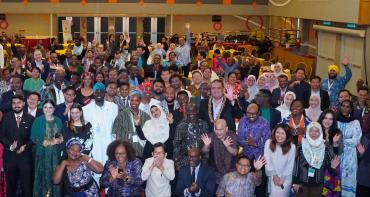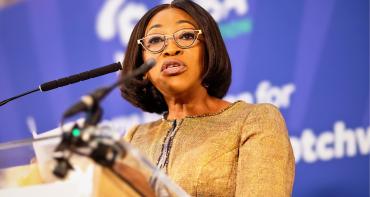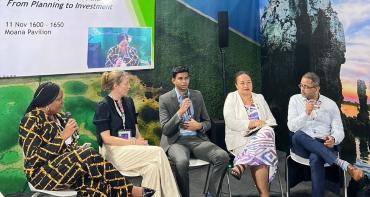Namibia’s Ombudsman has conducted a roundtable on sexual orientation and gender identity in his country with support from the Commonwealth. The conference builds on an earlier roundtable that focused on sexual and reproductive health and rights.

Namibia’s Ombudsman has conducted a roundtable on sexual orientation and gender identity in his country with support from the Commonwealth. The conference builds on an earlier roundtable that focused on sexual and reproductive health and rights.
The Deputy Minister of Justice, Lidwina Shapwa, opened the roundtable. “This discussion is very important for us as a country as we are still in a lot of legislation reforms,” she stated.
Deputy minister of justice landscape
“We want to make sure that the outcome of this roundtable has brought up issues that will assist the country in the reform of its laws, especially on issues of sexual orientation and inequality, gender inequalities.”
Led by the Ombudsman of Namibia, John Walters, participants were drawn from the government, faith-based organisations, civil society, academia and the Lesbian, Gay, Bisexual, Transgender and Intersex (LGBTI+) community. Together, they recognised the importance of language in addressing the topic of gender identity.
“Language is important - we should unlearn such things as hate speech, racism, sexism and other offensive words to describe a human being,” said the Ombudsman. “We should break down the name calling and try to see the common good”.
The Commonwealth provided technical human rights expertise and funding support to the roundtable. Karen McKenzie, Head of Human Rights at the Commonwealth, said: “Our work with the Ombudsman of Namibia is focused on national human rights challenges such as sexual orientation and gender identity and how to sustain an inclusive national dialogue. This initial conversation was commendable. It included representation and participation from the highest levels in government and parliament”.
Participants developed proposals on how best to ensure the greater inclusion and representation the LGBTI+ community. They recognised the need to provide more services to marginalised people, especially in the education and health sectors. Their recommendations included better coordination between civil society and the Ombudsman.
Anthony Brown, a human rights and education expert from the University of Johannesburg, said: “I would like to thank the Commonwealth for creating this platform for communities that are normally side-lined to the periphery of the Namibian community, to come together in dialogue”.
At the conclusion of both roundtables, Ombudsman Walters stated: “Let me first express my appreciation and thanks to the Commonwealth for their support. A very successful four days of discussions and conversations would not have been possible without their support.”
“I know that the greatest challenge for us now in Namibia is how to take these issues further and how to link these conversations with implementation of the Sustainable Development Goals,” he concluded.



